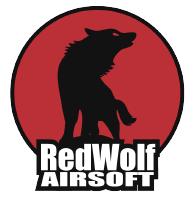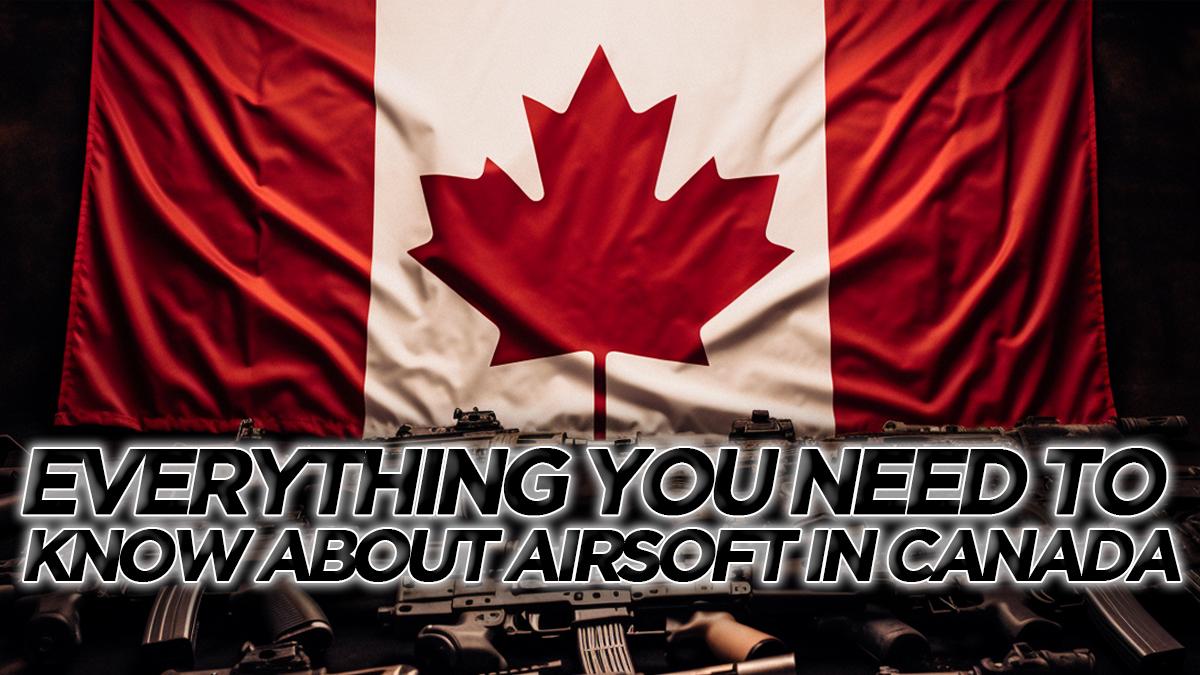Airsoft has gained immense popularity across the globe, offering enthusiasts a unique blend of teamwork, strategy, and realistic combat simulations. As the sport continues to attract players of all ages and backgrounds, Canada has emerged as a hub for the airsoft community, with its vast landscapes, dedicated fields, and passionate players.
We will delve into the essential aspects of playing airsoft in Canada, from understanding the legal framework and safety regulations to exploring the thriving community and finding the best playing locations. We'll also cover Bill C-21 and share insights from experienced players to help you take your airsoft game to the next level. Whether you're a resident of the Great White North or a curious visitor, we'll equip you with all the knowledge necessary to navigate the Canadian airsoft scene with confidence.
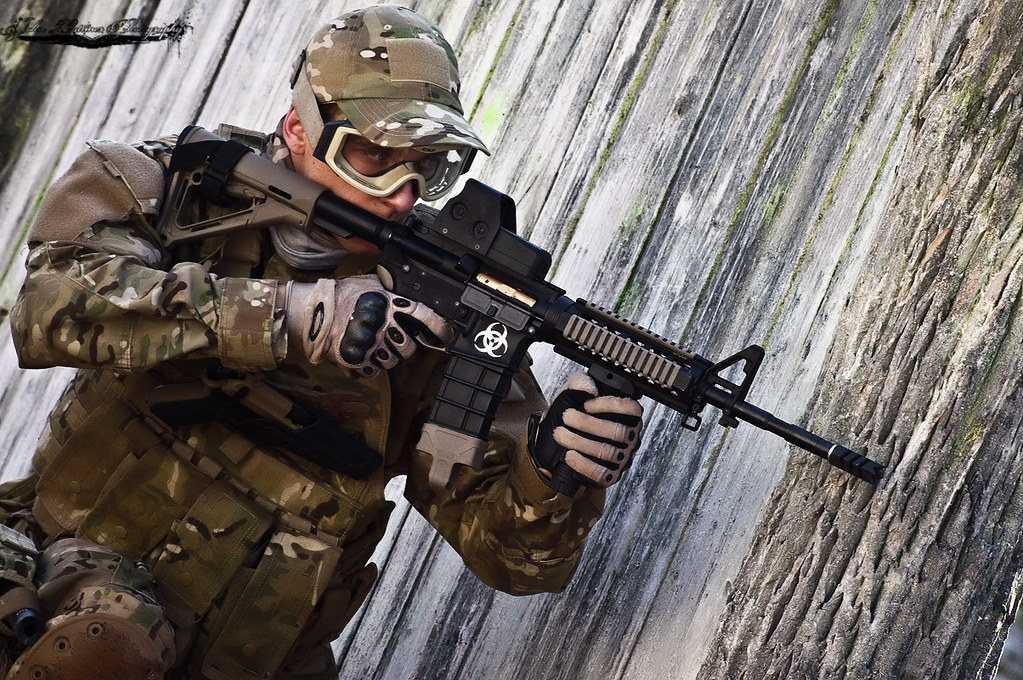
Is Airsoft Legal In Canada?
Yes, airsoft is legal in Canada. It is a popular recreational activity in Canada that allows participants to engage in simulated military or tactical scenarios using replica firearms that shoot non-lethal plastic pellets. It provides an exciting and immersive experience for enthusiasts of all ages. Participants in airsoft games typically wear protective gear, such as goggles, masks, and appropriate clothing, to ensure safety during gameplay. These precautions are essential to protect against potential impacts and maintain a safe environment for all players involved.
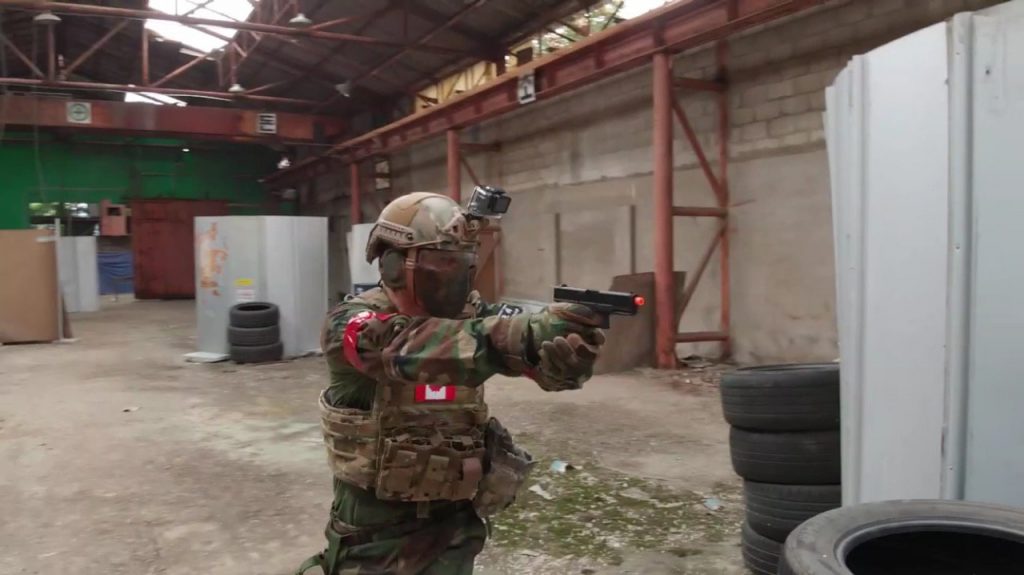
Airsoft games are usually held in designated areas, such as specialized fields or arenas. These locations provide structured environments with various obstacles, structures, and terrain features that simulate real-life combat scenarios. The fields or arenas often have established rules and regulations to ensure fair play and maintain a safe atmosphere. The sport of airsoft places a strong emphasis on teamwork, strategy, and communication. Players often form teams and engage in different game formats, such as team-based objectives, capture the flag, or elimination matches. These games require coordination, effective communication, and tactical thinking to outmaneuver opponents and achieve their objectives.
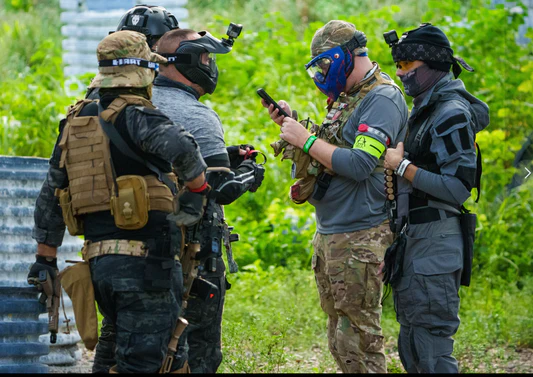
Airsoft guns used in the sport come in a wide range of types and models, including pistols, rifles, shotguns, and sniper rifles. These replica firearms are designed to closely resemble their real counterparts and offer a realistic feel during gameplay. Participants can choose from various options based on their preferred playstyle and role within the game.
Are Airsoft Guns Legal In Canada?
Yes, airsoft guns are legal in Canada. However, some specific regulations and requirements must be followed to possess, purchase, and legally use airsoft guns. Airsoft guns are classified as replica firearms in Canada. To be considered legal, airsoft guns must meet certain criteria.
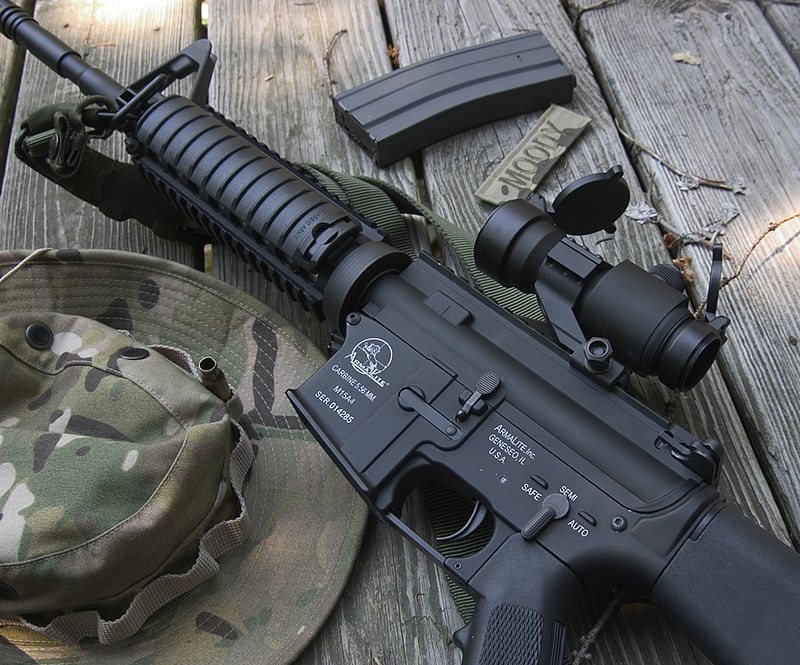
When it comes to appearance, it is crucial for airsoft guns not to resemble real firearms closely. This means that if an airsoft gun bears a striking resemblance to a genuine firearm, such as a Glock, M4, or any other commonly used weapon, it would be considered illegal. However, if the airsoft gun has distinct modifications, such as different colors, markings, or other decorative elements, it can be deemed legal. It is important to note that the airsoft gun should not be explicitly labeled as a replica firearm. This is a very “Grey Area“ in Canadian law regarding airsoft it is best to buy from a Canadian dealer as whatever they have has already cleared Customs inspection or an online retailer that has experience with shipping airsoft replicas to Canada.
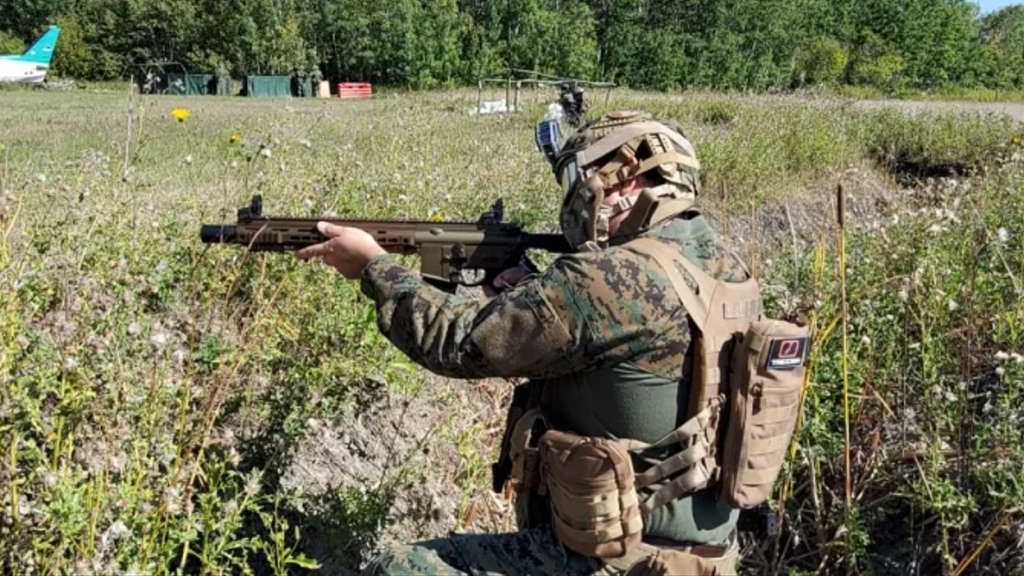
There are a couple of exceptions to the appearance rule. Airsoft guns that replicate firearms manufactured before 1898 are considered legal in Canada. Although these historical replicas may not perform as competitively as modern airsoft guns, they are still permitted. Another exception applies to individuals who owned an airsoft replica before 1998 when the current regulations were enacted. However, even in such cases, restrictions exist, such as the prohibition of selling the replica or taking it to international airsoft gun shows.
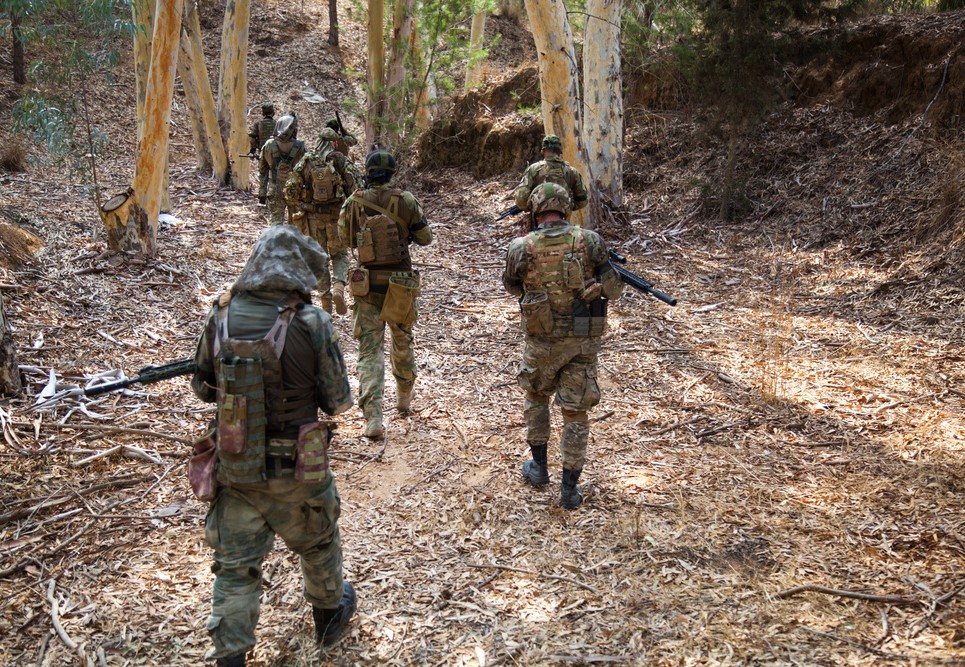
What is the legal power limit for airsoft in Canada?
Velocity/ power limit is another critical aspect of airsoft gun legality. To own an airsoft gun without requiring a license, it must meet specific velocity requirements. The muzzle velocity of the airsoft gun should have a minimum of 366 ft/s (approximately 111.6 m/s) and a maximum of 500 ft/s (approximately 152.4 m/s). If the muzzle velocity exceeds this maximum limit, it falls under the category of firearms and requires a proper license to possess and use. It is crucial to adhere to these velocity limits to ensure the safe and responsible use of airsoft guns.
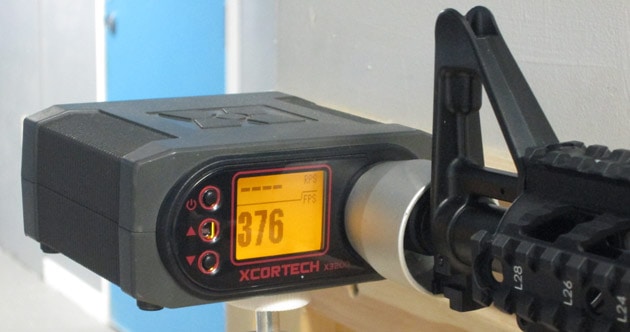
Furthermore, it is essential to exercise responsibility when using airsoft guns within the legal velocity ranges. If an airsoft gun is used in the commission of a crime, it is treated as if a real firearm were used, potentially leading to severe legal consequences. Therefore, it is strongly advised to use airsoft guns responsibly and in designated areas or organized events where safety precautions are in place.
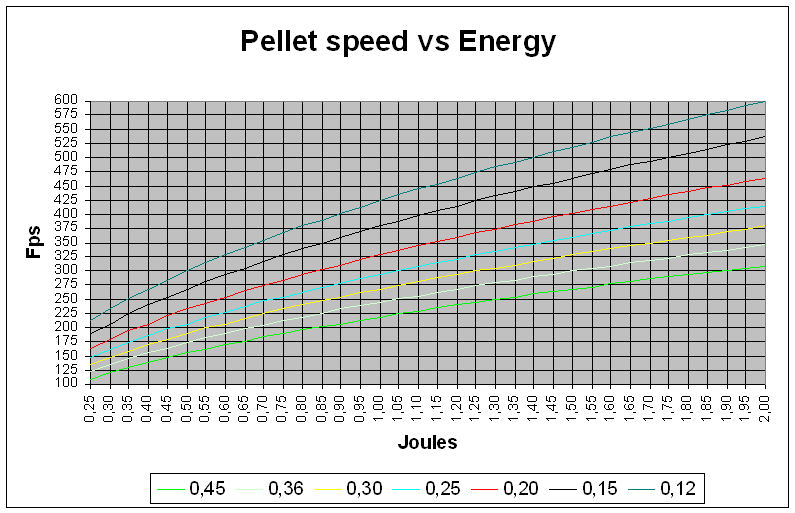
What Age Can You Buy an Airsoft Gun In Canada?
In terms of age restrictions, several provinces in Canada, including Quebec, Ontario, Saskatchewan, Manitoba, and British Columbia, have set the minimum age to purchase an airsoft gun at 18 years old. However, parents or legal guardians can purchase airsoft guns for their children. Outside of these provinces, there is no specific minimum age requirement set by law, although individual retailers may have age restrictions in place. It is always wise to check with the retailer or local authorities to ensure compliance with any age-related regulations.
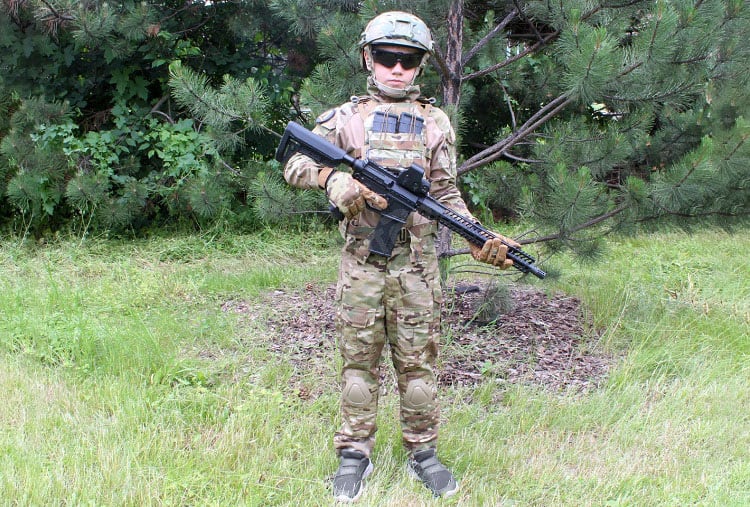
What Age Can You Play Airsoft in Canada?
In Canada, the minimum age requirement to play airsoft is typically 18 years old. However, it's important to note that certain airsoft fields may have different rules regarding the participation of children. In some cases, children may be allowed to play if accompanied by a responsible adult.
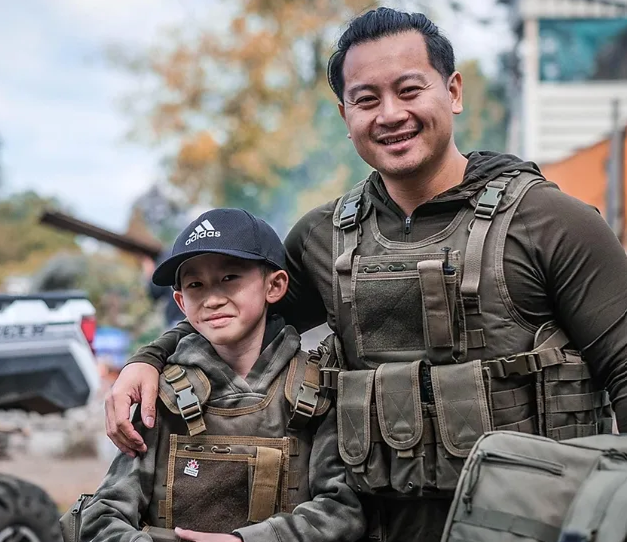
To ensure accurate information and a smooth experience, it's always recommended to contact the airsoft field directly. By phoning or emailing the field beforehand, you can inquire about their specific rules and regulations regarding the minimum age for participation. This proactive step will help you plan accordingly and avoid any potential issues upon arrival at the airsoft field.
What is Bill C-21?
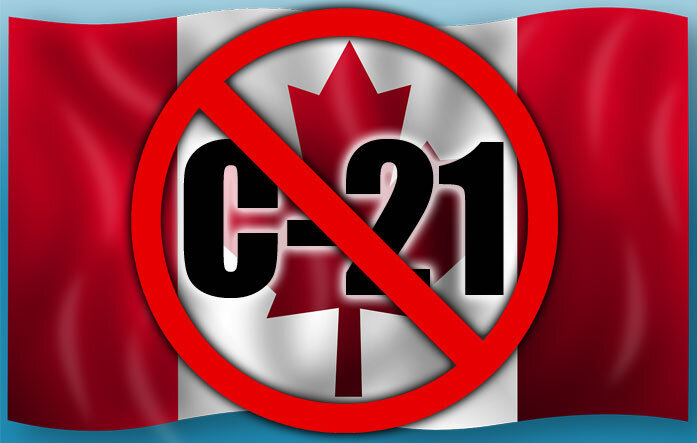
Bill C-21, also known as An Act to Amend Certain Acts and to make certain consequential amendments (firearms), is a proposed legislation in Canada that aims to amend existing laws related to firearms. Introduced by the Canadian government in February 2021, Bill C-21 seeks to strengthen gun control measures and enhance public safety.
The key provisions of Bill C-21 include:
1) Regulating airsoft guns:
The bill proposes to classify airguns, including airsoft guns, as firearms under Canadian law. This would subject them to certain regulations and requirements, such as licensing and registration, similar to other firearms.
2) Empowering municipalities to ban handguns:
The legislation aims to grant municipalities the authority to enact bylaws to ban handguns within their jurisdictions. This provision is intended to provide local governments with the ability to implement stricter regulations tailored to their specific needs and concerns.
3) Enhanced background checks:
Bill C-21 proposes to strengthen background checks for individuals seeking to obtain a firearms license or undergo a license renewal. This includes considering an applicant's history of violence, self-harm, or threats of violence against an intimate partner.
4) Storage requirements:
The bill suggests introducing additional storage requirements for firearms to help prevent theft and unauthorized access. These requirements would apply to both individuals and businesses that possess firearms.
5) Introduction of "red flag" and "yellow flag" laws:
The legislation includes provisions for "red flag" and "yellow flag" laws. "Red flag" laws would enable concerned individuals to apply for a court order to have someone's firearms temporarily removed if they pose a risk to themselves or others. "Yellow flag" laws would allow authorities to suspend a person's firearms license and seize their firearms if there are concerns about their ability to possess firearms safely.

It's important to note that Bill C-21 is a proposed legislation and has not yet become law. As with any bill, it undergoes a legislative process, including debates, potential amendments, and votes in the Parliament of Canada. Therefore, the specific provisions and their final form may be subject to change based on the legislative process. It's advisable to consult the most up-to-date information and official sources for the current status and details of Bill C-21.
Importing Airsoft Guns Into Canada

When it comes to importing airsoft guns into Canada, they must meet all the other legal requirements mentioned above. It is advisable to carefully review the specifications and characteristics of the airsoft gun before importing it into the country. Some international companies may specifically indicate whether their airsoft guns are suitable for the Canadian market, which can help ensure compliance with the regulations.
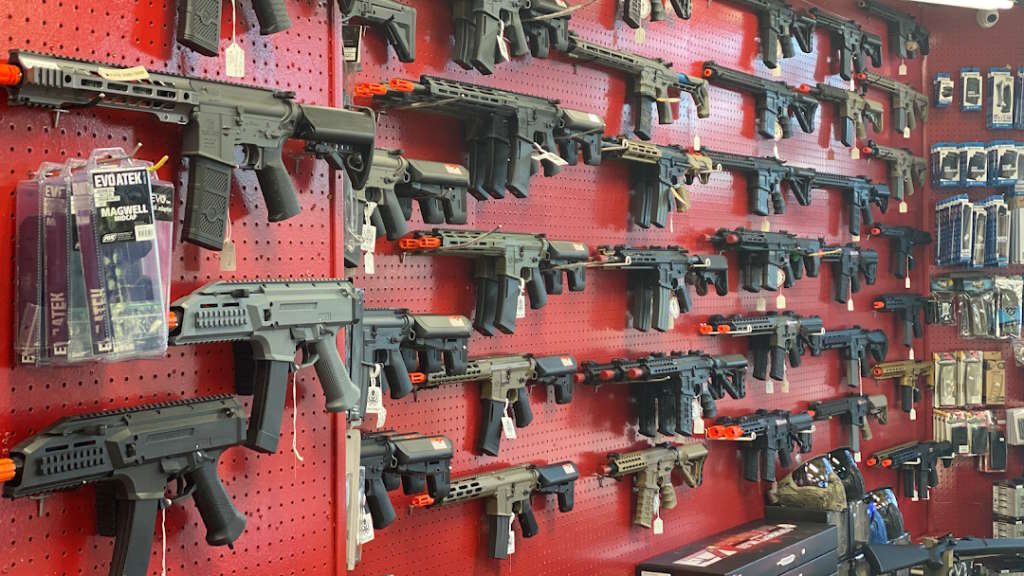
As with any legal framework, it is important to stay informed about potential changes in the law. While there hasn't been a significant push for changes to airsoft gun regulations in recent times, it is worth noting that certain police forces have made suggestions regarding prohibiting airsoft guns that closely resemble real firearms rather than just replicas. Therefore, staying up to date with any developments or amendments in the law is crucial for all airsoft enthusiasts in Canada.
Where To Buy Airsoft Guns In Canada?
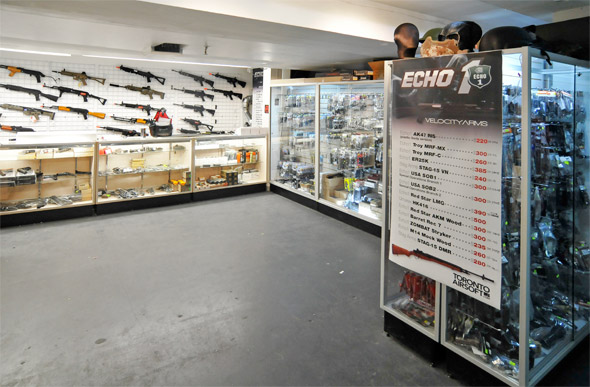
There are several reputable options for purchasing airsoft guns in Canada. Here are a few popular avenues where you can buy airsoft guns:
Local Retail Stores: Many cities in Canada have specialized airsoft stores or sporting goods stores that carry airsoft guns and related equipment. These stores often provide a wide range of options and knowledgeable staff who can assist you in finding the right airsoft gun for your needs.
Online Retailers: Numerous online retailers based in Canada cater specifically to the airsoft community. These websites offer a wide selection of airsoft guns, accessories, and gear. Some popular online retailers include Redwolfairsoft.com, TorontoAirsoft.com, Mach1 Airsoft, and Division XP.
Canadian Airsoft Forums and Classifieds: Online forums and classifieds dedicated to airsoft in Canada can be a great resource for purchasing used airsoft guns or connecting with local sellers. Popular forums include Airsoft Canada and Canadian Airsoft Forums, where members often buy, sell, and trade airsoft equipment.
Airsoft Events and Expos: Airsoft events, expos, or swap meets provide an opportunity to purchase airsoft guns directly from vendors or other players. These events often have a wide variety of options available and can be a great way to see and handle different models before making a purchase.
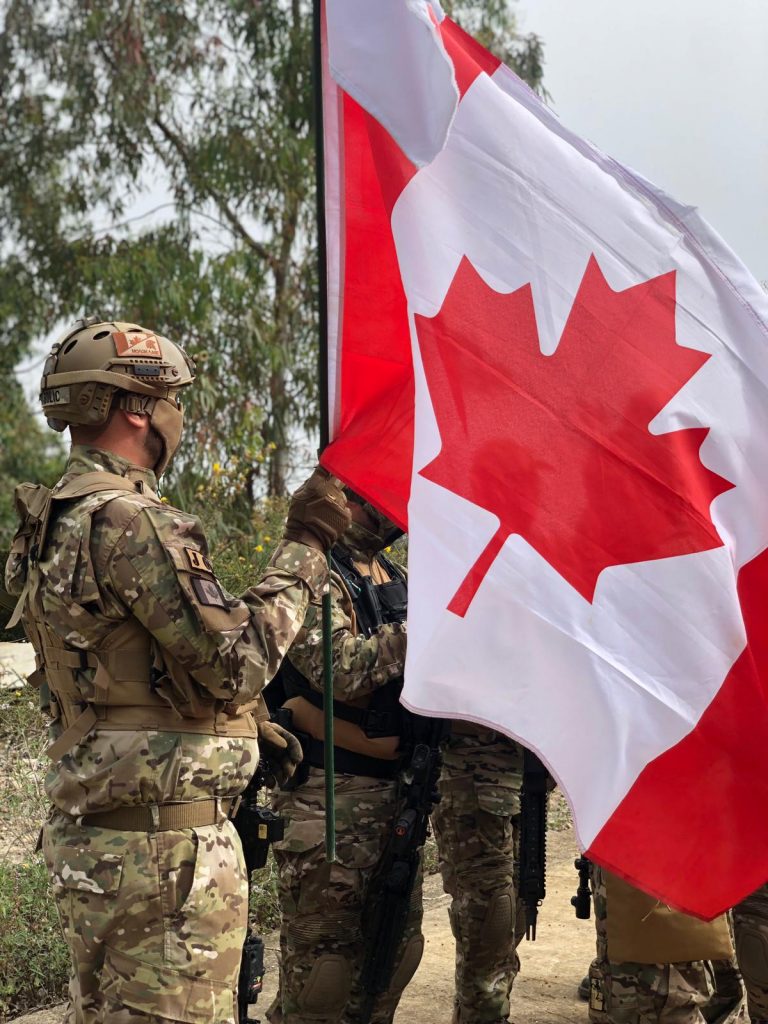
When purchasing airsoft guns in Canada, it's important to ensure that the guns comply with Canadian regulations regarding appearance and velocity limits. Familiarize yourself with the local laws and regulations governing airsoft guns to ensure you make a legal and responsible purchase. Remember to always prioritize safety, consider your skill level and playing style, and choose a reliable and reputable source when buying airsoft guns in Canada.
Does RedWolf Airsoft Ship To Canada?

Yes, RedWolf Airsoft can ship airsoft products to Canada, provided that the items being shipped comply with the legal limits and regulations set by Canadian authorities. It is important to ensure that any airsoft guns purchased from RedWolf Airsoft meet the specific requirements outlined in Canadian regulations to ensure their legality and safe importation.
In Canada, airsoft guns must adhere to strict guidelines regarding appearance and velocity. The appearance of airsoft guns should not closely resemble real firearms, as this could potentially cause confusion or misidentification. Therefore, modifications or distinct features may be necessary to differentiate them from airsoft guns and prevent any misconceptions.
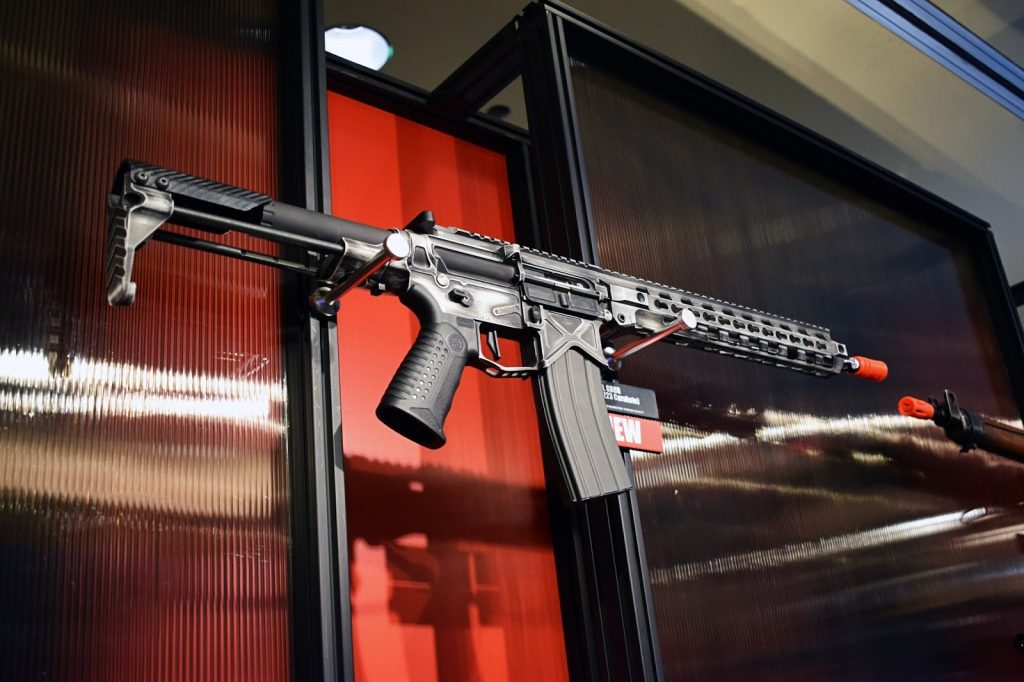
Furthermore, the velocity of airsoft guns must fall within the designated limits set by Canadian regulations. The muzzle velocity typically needs to be within a range of 366 feet per second (approximately 111.6 meters per second) to 500 feet per second (approximately 152.4 meters per second) to ensure compliance. It is important to note that exceeding the maximum velocity limit may classify the airsoft gun as a firearm, which would require proper licensing for possession and use.
Where Can You Shoot Airsoft Guns In Canada?
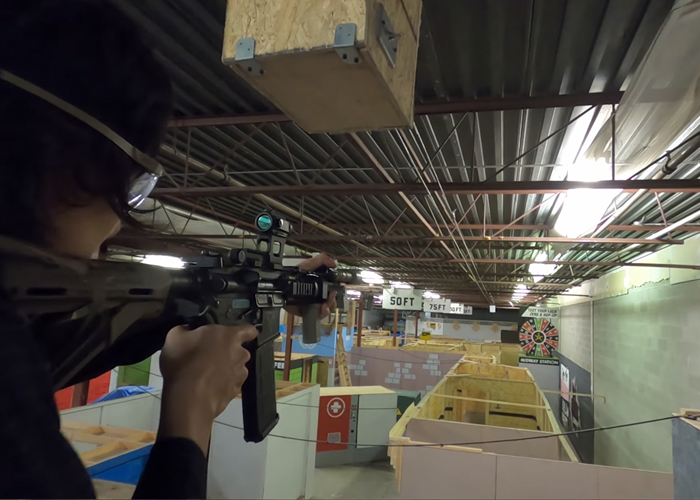
In Canada, the use of airsoft guns is generally restricted to designated areas or airsoft fields. These fields provide controlled environments specifically designed for airsoft gameplay. Here are some common places where you can shoot airsoft guns in Canada:
Airsoft Fields: Dedicated airsoft fields or arenas are the most suitable and popular locations for shooting airsoft guns in Canada. These fields have structured game zones, obstacles, and safety measures in place to ensure a safe and enjoyable experience. They often offer various game formats and scenarios for players to participate in.
Paintball Fields: Some paintball fields in Canada also accommodate airsoft gameplay. These fields may have specific days or times dedicated to airsoft, or they may have separate areas for airsoft players. Check with the paintball field beforehand to confirm their policies regarding airsoft.
Private Property: If you have access to private property, such as large yards or rural areas, you may be able to shoot airsoft guns with the permission of the property owner. However, it is crucial to ensure that shooting airsoft guns on private property is legal and safe, taking into consideration local bylaws, noise regulations, and potential risks to neighboring properties.
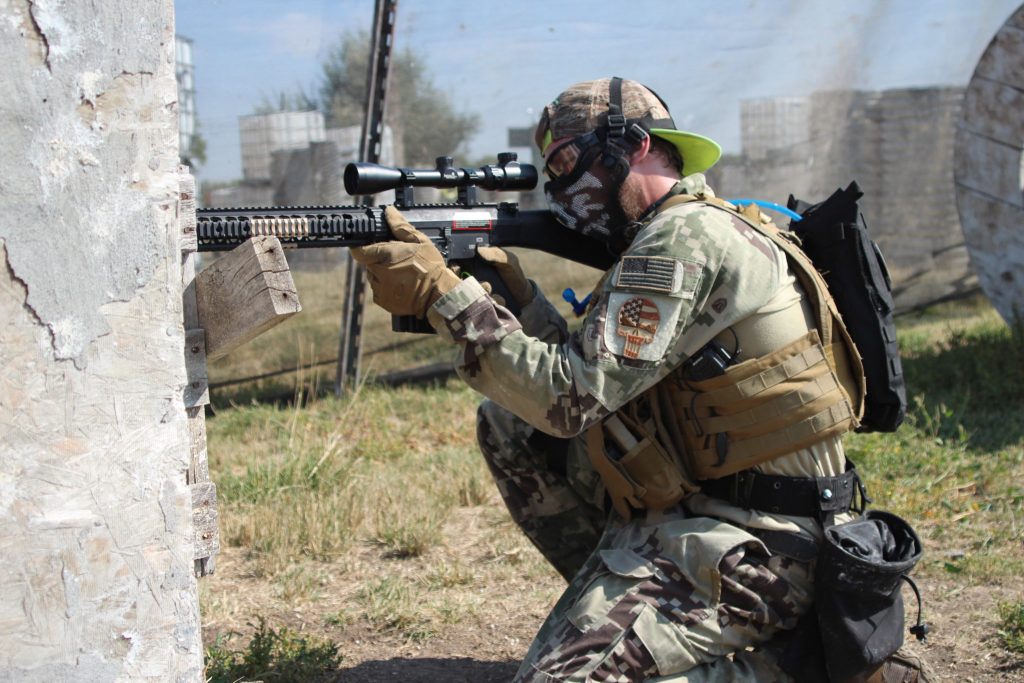
In conclusion, airsoft guns are indeed legal in Canada, but it is essential to adhere to the specific regulations regarding appearance and velocity. By following these regulations, airsoft enthusiasts can enjoy the sport responsibly and ensure their continued legality in the country.
Can You Carry An Airsoft Gun in Canada?
It is important to note that brandishing or displaying an airsoft replica in a public setting can potentially lead to legal consequences in Canada. The appearance of airsoft guns closely resembles real firearms, and their misuse or improper display can cause alarm and confusion among the public and law enforcement. To ensure safety and compliance with the law, it is crucial to handle airsoft guns responsibly and avoid any actions that may be perceived as a threat. Carrying or displaying an airsoft replica in a public area, without a legitimate and lawful reason, can result in legal trouble.
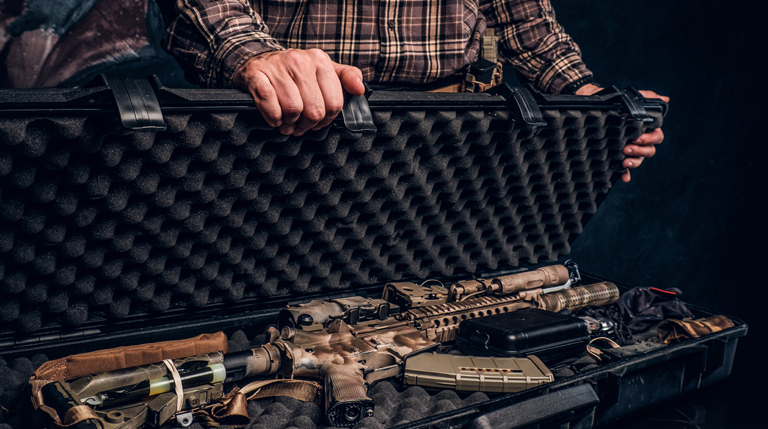
The best and recommended way to carry an airsoft gun in Canada is to transport it in a secure and approved manner, such as in a case or a non-see-through bag. This helps ensure the safety and prevent any unnecessary alarm or confusion among the public. By storing your airsoft gun in a case or a non-see-through bag, you not only comply with the transportation regulations but also minimize the risk of any accidental display or misinterpretation. This responsible approach demonstrates your commitment to safety and respect for the law.
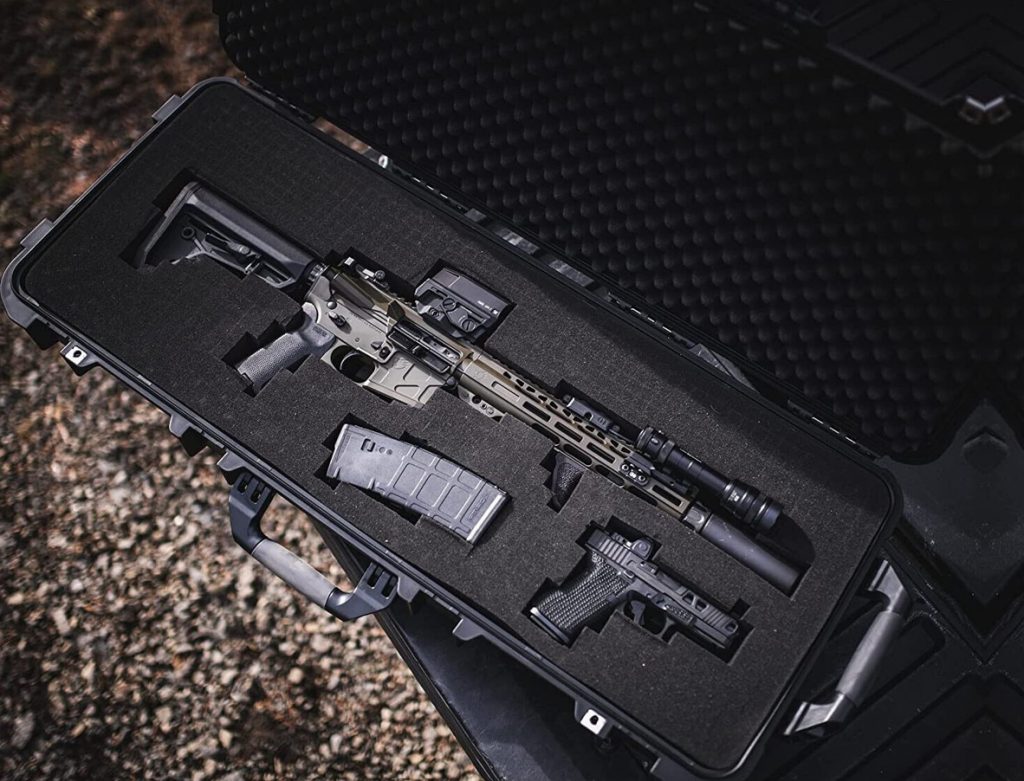
Remember, it is essential to handle and transport airsoft guns responsibly to maintain a positive image of the airsoft community and avoid any potential misunderstandings. By securely storing your airsoft gun in an appropriate case or bag, you can enjoy the sport while promoting a safe and responsible environment for all.
Can I Shoot Airsoft Guns In My Backyard In Canada?
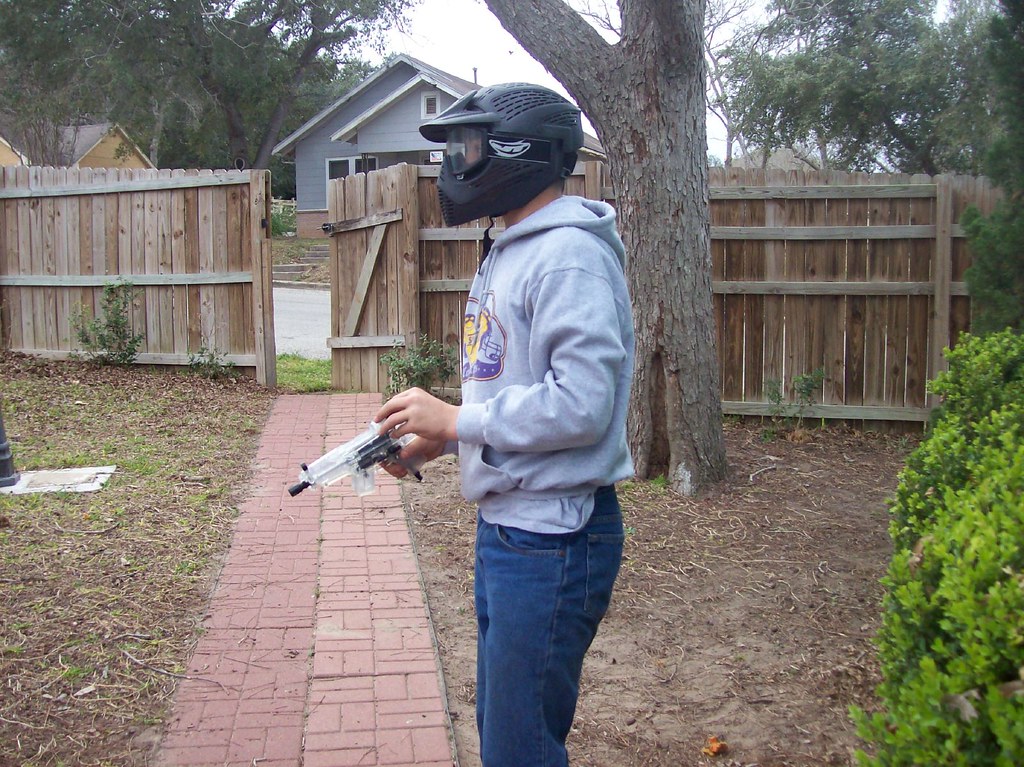
The regulations regarding shooting airsoft guns in your backyard in Canada vary depending on your specific location and local bylaws. Generally, discharging airsoft guns in residential areas or within city limits is not permitted due to safety concerns and the potential for public alarm. It is important to check with your local municipality or city bylaws to determine whether shooting airsoft guns in your backyard is allowed. Some areas may have restrictions or prohibitions in place, while others may allow it under certain conditions, such as specific distances from neighboring properties or safety precautions.
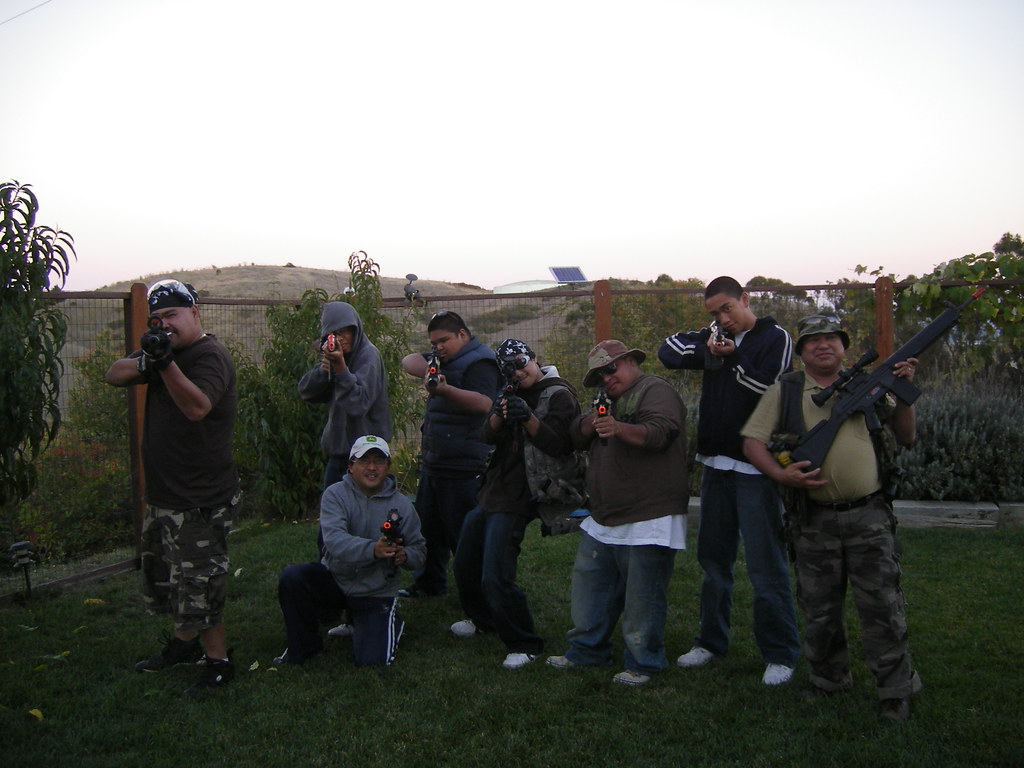
Even if shooting airsoft guns is permitted in your backyard, it is crucial to prioritize safety at all times. Ensure that you have a safe and controlled shooting area, away from people, pets, and valuable property. Always use appropriate eye protection and follow safe handling and shooting practices to prevent accidents and maintain a responsible approach to the sport. To avoid any potential legal issues or conflicts, it is advisable to use designated airsoft fields or facilities that provide a controlled and regulated environment for shooting and gameplay.
Do Airsoft Guns Need Orange Tips In Canada?
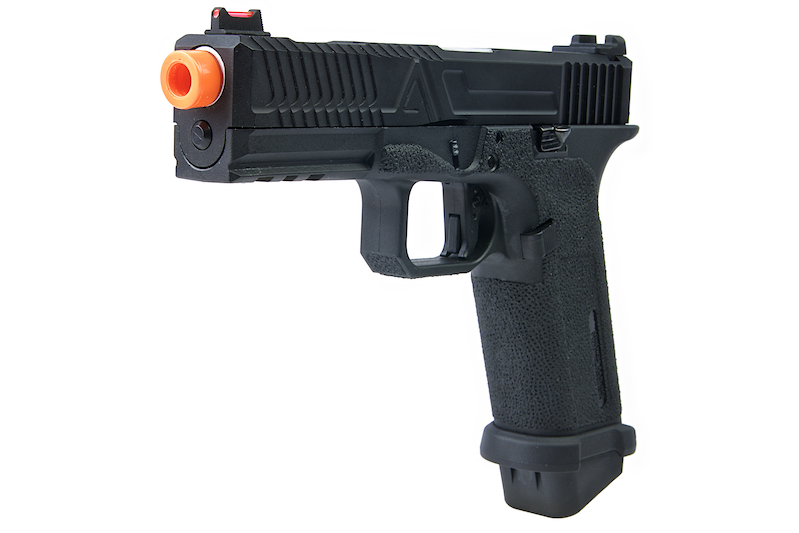
Unlike in some other countries such as the United States, orange tips on airsoft guns are not legally required in Canada. The requirement for orange tips is primarily a safety measure implemented in certain jurisdictions to help distinguish airsoft guns from real firearms, especially during transportation or public display.
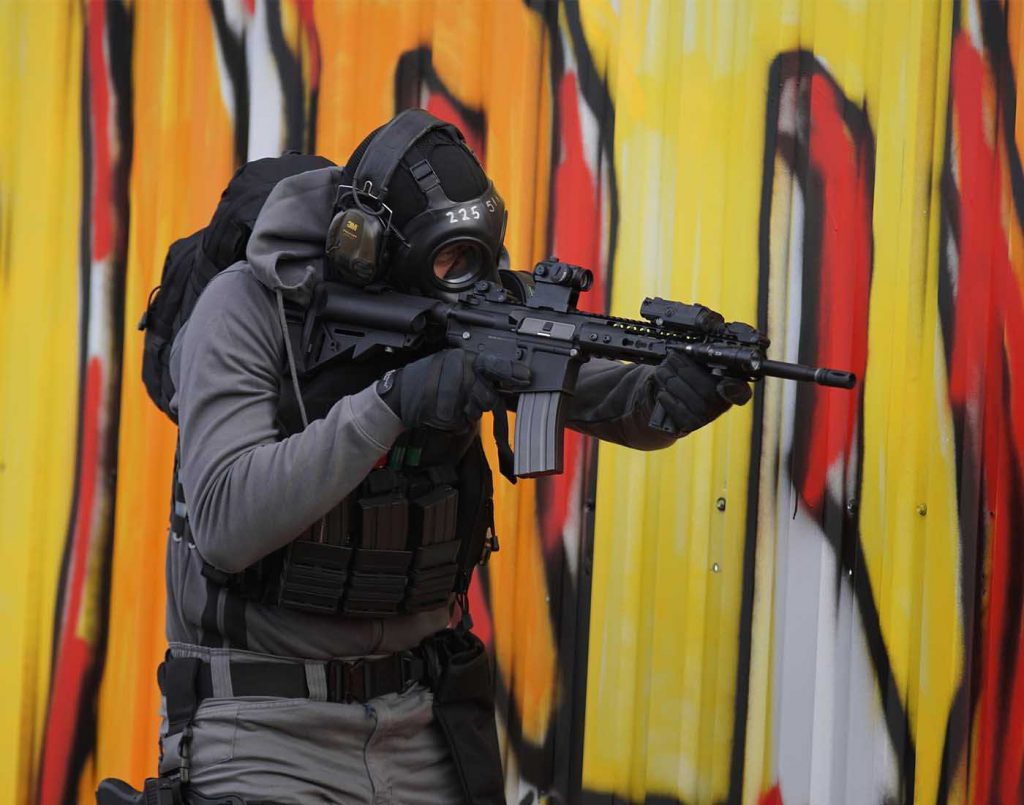
However, it is crucial to prioritize safety and exercise responsible behavior when dealing with airsoft guns in Canada. While the law may not mandate orange tips, mistaking an airsoft gun for a real firearm can still have serious consequences. It is essential to use common sense, follow safety guidelines, and ensure responsible usage at all times.
What Airsoft Guns Are Legal In Canada?
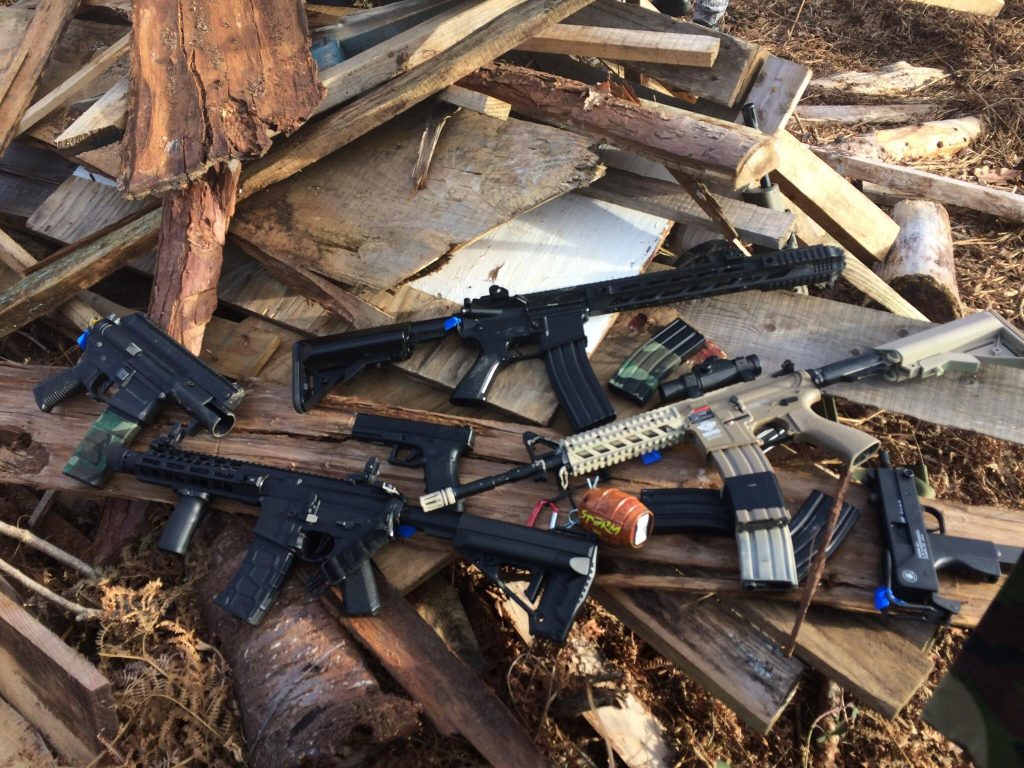
In Canada, the legality of specific types of airsoft guns, such as AK47s, M4s, or other model airsoft guns is not explicitly listed. Instead, the legality of an airsoft gun is primarily based on its characteristics and compliance with certain regulations. These regulations focus on factors such as muzzle velocity, appearance, and functionality rather than specific gun models. It is crucial to note that regulations regarding airsoft guns may vary by province and can be subject to change. It is always recommended to consult local authorities, law enforcement, or legal experts to ensure compliance with the current regulations in your specific jurisdiction.
